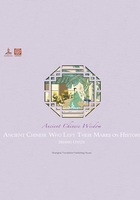
王充 Wáng Chōng (27-circa 99 AD)
An Iconoclastic Thinker
Born in what is today’s Shangyu County, Zhejiang Province in eastern China, Wang Chong lost his father when he was only 10 years old. Later, he was known in the local community for his filial piety and his devotion to his mother.
His humble origins contributed to his sensitive, perseverant and aloof personality. When he was about 17, Wang finished his primary education in his hometown and then went to Luoyang, the capital in the north to continue studying. But he was so poor that he couldn’t afford the books needed for his study, so he frequently visited the local bookstalls where he would read many classic writings.
After studying in both the south and the north of the country, Wang witnessed the great cultural gap between the two places.
In the north, people had already developed a set of complicated rituals. In his hometown in the south, the environment for making a living was harsher. So, local people were more practical and they paid little attention to formalities.
Generally speaking, it was a time rife with theological thinking and superstition. Lao Zi, the founder of Daoism, and Confucius, the creator of Confucianism, had been worshipped like gods and their philosophies had become superstitions and state religion. In addition, the belief in ghosts and the practice of fengshui were ubiquitous.
Known as a rationalist and one of the most original and independent Chinese thinkers, Wang responded to all these notions with derision and sharp criticism. He stressed that all words and philosophies of the previous sages should be treated critically.
He wrote an 85-chapter book entitled Lun Heng or “Balanced Enquires” to spread his “naturalism of primordial qi.”
He said that heaven, like all other natural objects, is a natural body. It comprises the “primordial qi” the original substance similar to smoke and cloud. Therefore, heaven has no purpose for man.
He believed that man is also a part of nature and is not substantially different from other natural things in the universe. Only because they have knowledge and wisdom, they are deemed slightly more superior than others.

Many previous classics tended to deify the rulers and in the Chinese culture, the emperors were often denoted as the descendants of the dragon. Wang pointed out such an idea was totally absurd because the dragon was but a beast, so how could it be nobler than man?
In his book, Wang also used the materialistic and atheistic approach to explain natural signs and denounced ludicrous superstitions. For instance, he described his observations on movement, force, heat, static, thunder, sound and other physical and chemical phenomena. He even declared that sound is created by vibration and transmitted through certain substances, 1,600 years before Robert Boyle’s discovery of air’s role in the propagation of sound.
Wang’s ideas later influenced the resurgence of the school of “neo-Daoism,” which adopted a more rational and naturalistic line to explain the universe.
Wang’s career in officialdom was short-lived due to his argumentative nature, iconoclastic approach and innate resent toward officials. So, after taking a few minor government positions, he spent most of his life as a teacher in his hometown.